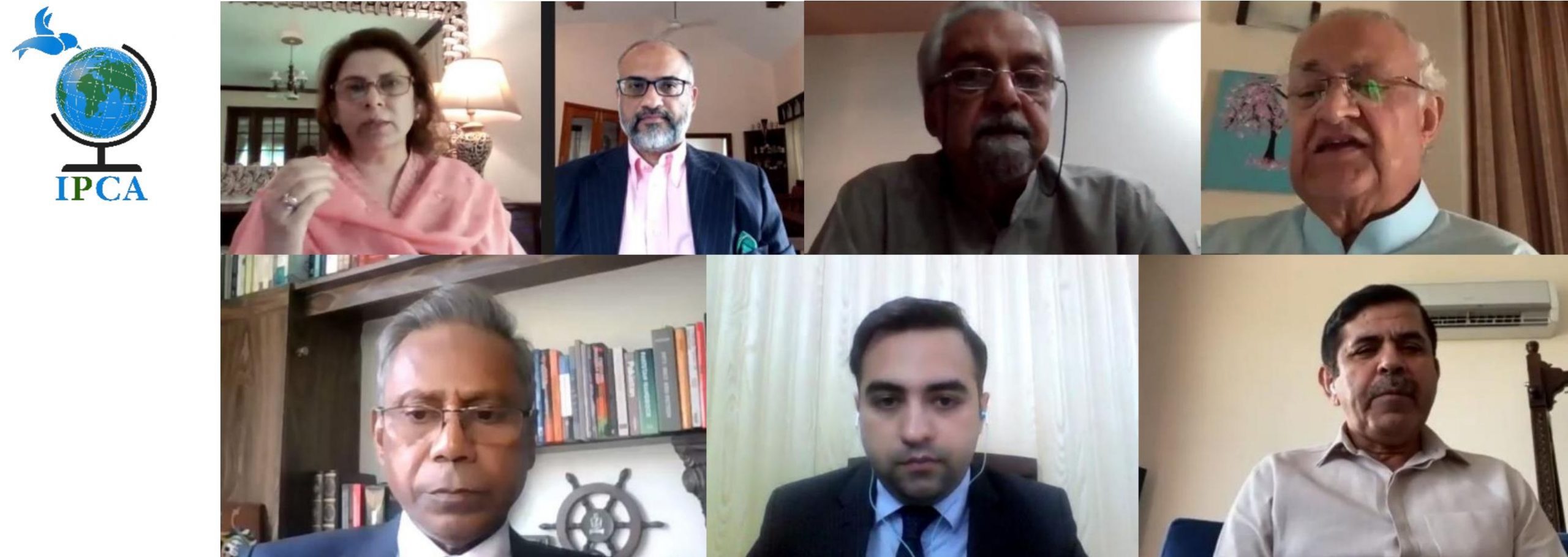Islamabad ( ) Political and economic stability is a prerequisite to Pakistan’s progress and economic prosperity. States interact with one another because their interests are aligned with each other. These views were expressed by former Senator Nisar Memon in a webinar organized by Islamabad-based think tank, Institute of Peace and Contemporary Affairs (IPCA). He further said that Pakistan needs to be strengthened on the inside by upholding the constitution and making the rule of law supreme. Bureaucracy is the backbone of Pakistan, and they must be guided in the right direction by the leadership to attain desired results.
Ambassador Najm-us-Saqib stated that our fundamentals must be set in the right direction. Maintaining cordial relations with China does not imply straining relations with the United States. Political leadership needs to take responsibility for Pakistan, even when they are not in the government. A weak state, both politically and economically, cannot have a viable foreign policy, and thus political stability is required for economic growth. Former President NDU General Samrez Salik highlighted that our future destiny is linked with China and Pakistan should take maximum benefits from CPEC. This multibillion-dollar economic corridor is a huge opportunity for Pakistan; however, it is upon us whether we convert it into a blessing or a curse. We can be friends for peace with the United States but not for war. Indian-centric South Asia is the least integrated and most conflict-prone region of the world. South Asian region is now transiting from Indian centricity to Chinese centricity which is expected to eliminate conflict and bring growth and development which is highly essential for this region.
Group Captain (R) Sultan Mahmood Hali said that Quaid-e-Azam Muhammad Ali Jinnah was the first martyr for Pakistan as his health severely deteriorated during his struggle for Pakistan. Our generation made several mistakes yet our next generation must take the responsibility of working for a prosperous Pakistan. Associate Professor Quaid-e-Azam University, Dr. Shabana Fayyaz said that Pakistan needs to invest in digitization and human capital. Connectivity through the region by goods, people, or digital should be the future of Pakistan. We have really strong startups and mid-careers investing in Digital harmony and the Digital National Security enterprise of Pakistan. President International Research Council for Religious Affairs Muhammad Israr highlighted the need for National Reintegration Policy for Pakistan. Militant organizations have exploited the religious differences and created diversions amongst the people of Pakistan while promoting extremism.
Policy Analyst Muhammad Ali said that opportunities are emerging in Asia and Africa due to the economic rise of China. Geopolitics and geoeconomics are not mutually exclusive. Geopolitics is influential on every major issue across the globe. Executive Director IPCA Hassam Siddiqi stressed the need for Pakistan to make an effort to retain balanced relations with the United States, Russia, and China as global superpowers. He said that though Pakistan is assisting Afghanistan in its difficult times, it may face the repercussions of a crisis and instability in Afghanistan. The webinar was attended by diverse audiences from different backgrounds.


